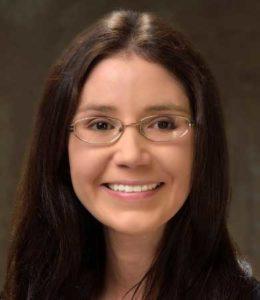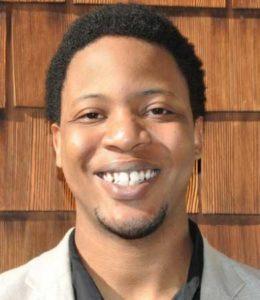APS Spotlight
Eight Early-Career Researchers Receive 2022 APS Janet Taylor Spence Award

The 2022 Janet Taylor Spence Award for Transformative Early Career Contributions has recognized eight psychological scientists for their innovative research in areas including social psychology, neurobiological mechanisms related to learning, emotional processes and management, and psychiatric and neurobiological disorders. First awarded in 2010 and named after APS’s first president, the Spence Award honors APS members who have made transformative early-career contributions to psychological science.
Listen to the 2022 Spence Recipients on the Under the Cortex Podcast

Texas A&M University
Brian Anderson is an associate professor at Texas A&M University, where he is also the director of human imaging in the department of psychological and brain sciences. His current research investigates reward learning and how it changes how we direct our attention in the future. Published research includes “Going for It: The Economics of Automaticity in Perception and Action” (Current Directions in Psychological Science, 2017).
Learning and Attention Lab: andersonlab.sites.tamu.edu

Brown University
Oriel FeldmanHall is the Alfred Manning Assistant Professor of Cognitive, Linguistic, and Psychological Sciences at Brown University. Her research integrates numerous fields, including behavioral economics and social psychology, with imaging and psychophysiological techniques to investigate the brain mechanisms that support complex processes. Published research includes “Associative Learning of Social Value in Dynamic Groups” (Psychological Science, 2017).
FeldmanHall Lab: feldmanhalllab.com
Listen to the podcast with Oriel FeldmanHall (includes transcript)

University of Toronto
Brett Ford is an assistant professor of psychology at the University of Toronto. Her research focuses on the basic science and health implications of how individuals think about and manage their emotions. Published research includes “Reappraisal Reconsidered: A Closer Look at the Costs of an Acclaimed Emotion-Regulation Strategy” (Current Directions in Psychological Science, 2019).
Affective Science & Health Laboratory: https://www.brettqford.com
Listen to the podcast with Brett Ford (includes transcript)

Vanderbilt University
Antonia Kaczkurkin is an assistant professor in psychology at Vanderbilt University. She researches the neurobiological mechanisms that contribute to the etiology of internalizing disorders, such as anxiety and depression, using multimodal measures like functional MRI, cerebral blood flow, and psychophysiology. Published research includes “Moderators of Change in Social Anxiety During CBT in a Transdiagnostic, Naturalistic Treatment-Seeking Sample” (Journal of Experimental Psychology, 2016).
Brains Lab: http://brains-lab.webnode.com
Listen to the podcast with Antonia Kaczkurkin (includes transcript)

Cornell University
Neil Lewis, Jr., is an assistant professor of communication and social behavior at Cornell University and an assistant professor of communication research in medicine at Weill Cornell Medical College. His research investigates how people’s identities and social contexts influence individual motivation to pursue goals and achieve them, specifically in the fields of education, health, and environmental sustainability. Published research includes “Communicating What We Know and What Isn’t So: Science Communication in Psychology” (Perspectives on Psychological Science, 2021).
Motivation and Goal Pursuit Lab: https://neillewisjr.com/mglab; Action Research Collaborative: https://bctr.cornell.edu/arc
Listen to the podcast with Neil Lewis, Jr. (includes transcript)

University of Birmingham
Patricia Lockwood is a senior research fellow at the University of Birmingham. She is a cognitive and social neuroscientist focused on the neurocognitive foundations of social learning and decision-making across the lifespan. Published research includes “Aging Increases Prosocial Motivation for Effort” (Psychological Science, 2021).
Social Decision Neuroscience Lab: https://www.sdn-lab.org

University of California, Berkeley
Jason Okonofua is a professor of psychology at the University of California, Berkeley. His research is primarily focused on examining social-psychological processes that contribute to societal inequality and how negative stereotypes can further those disparities. He is also working with APS President Jennifer Eberhardt on a project investigating psychological barriers juvenile offenders face while reintegrating back to home and school after incarceration. Published research includes “Two Strikes: Race and the Disciplining of Young Students” (Psychological Science, 2015).
EDENS Lab: https://edens.berkeley.edu/index.html
Listen to the podcast with Jason Okonofua (includes transcript)

National University of Singapore
Kai Chi (Sam) Yam is an associate professor of management and dean’s chair at the National University of Singapore Business School, where he also serves as assistant dean of faculty development. His research focuses on judgment and decision-making, leadership, organizational behavior, and business ethics, as well as behavioral ethics, humor, and the future of work. Published research includes “Conveyed Leader PsyCap Predicting Leader Effectiveness Through Positive Energizing” (Journal of Management, 2017).
His website: http://sam-yam.com
Listen to the podcast with Kai Chi (Sam) Yam (includes transcript)
Learn more about the Spence Awards and other APS awards programs
Feedback on this article? Email [email protected] or scroll down to comment.





APS regularly opens certain online articles for discussion on our website. Effective February 2021, you must be a logged-in APS member to post comments. By posting a comment, you agree to our Community Guidelines and the display of your profile information, including your name and affiliation. Any opinions, findings, conclusions, or recommendations present in article comments are those of the writers and do not necessarily reflect the views of APS or the article’s author. For more information, please see our Community Guidelines.
Please login with your APS account to comment.